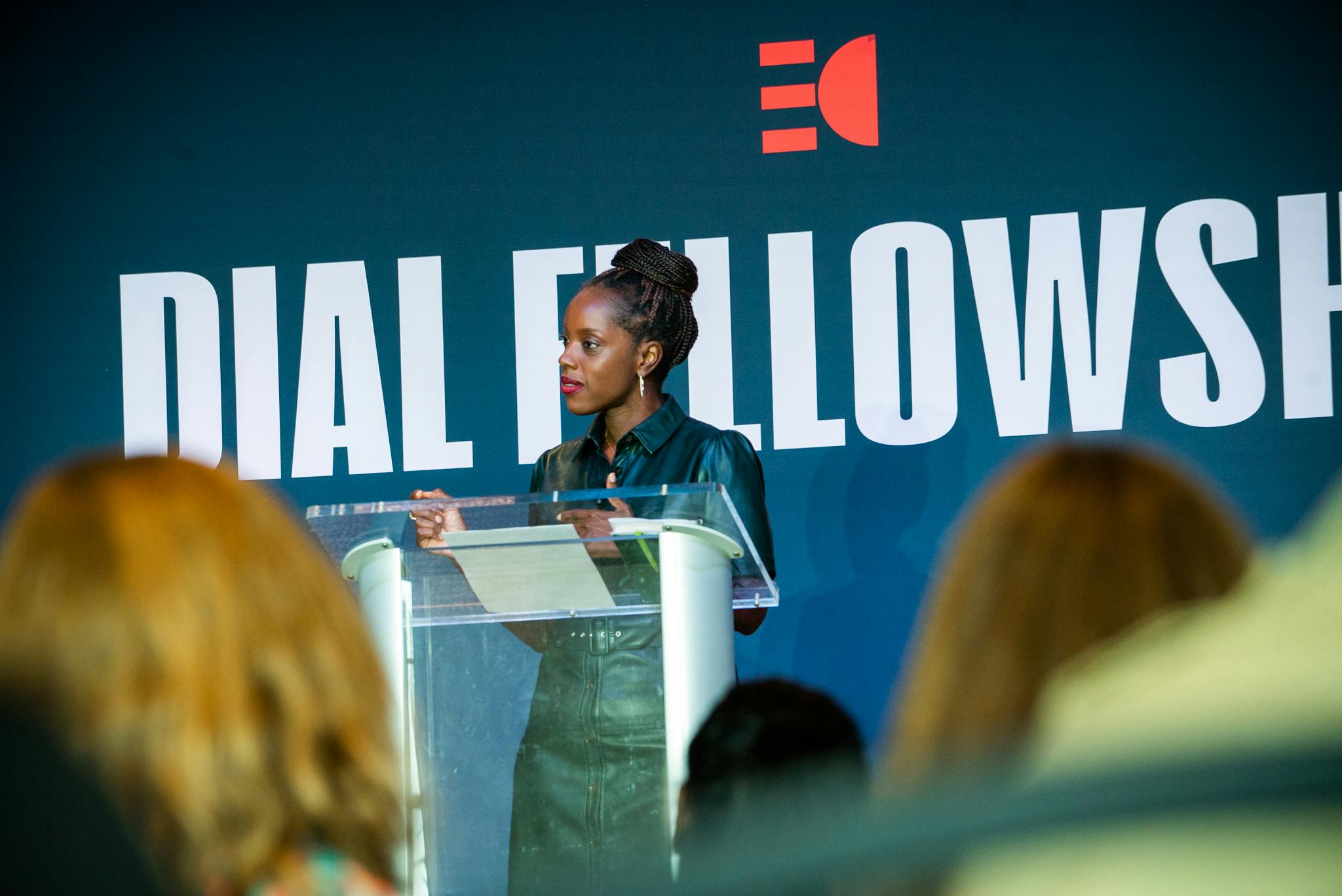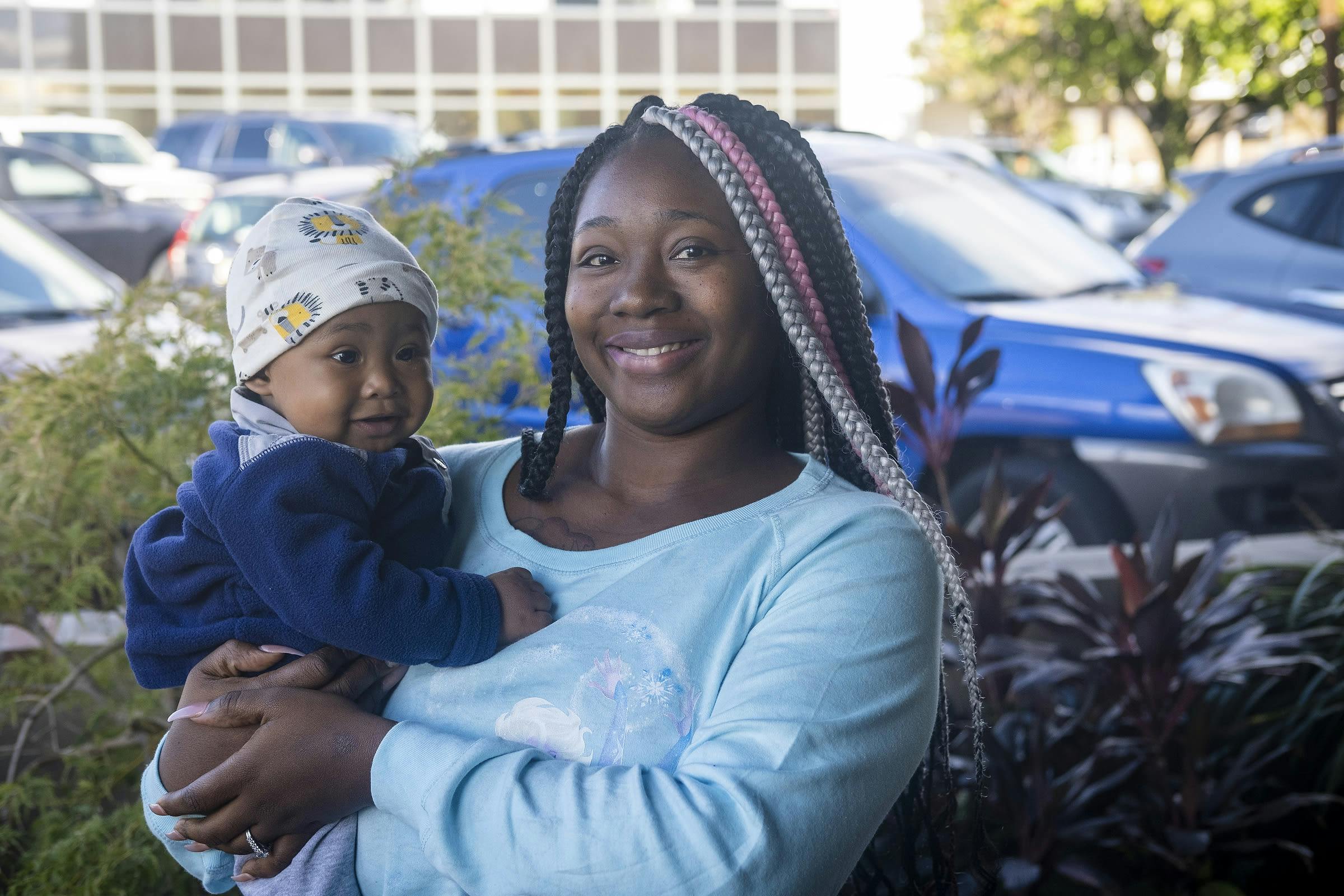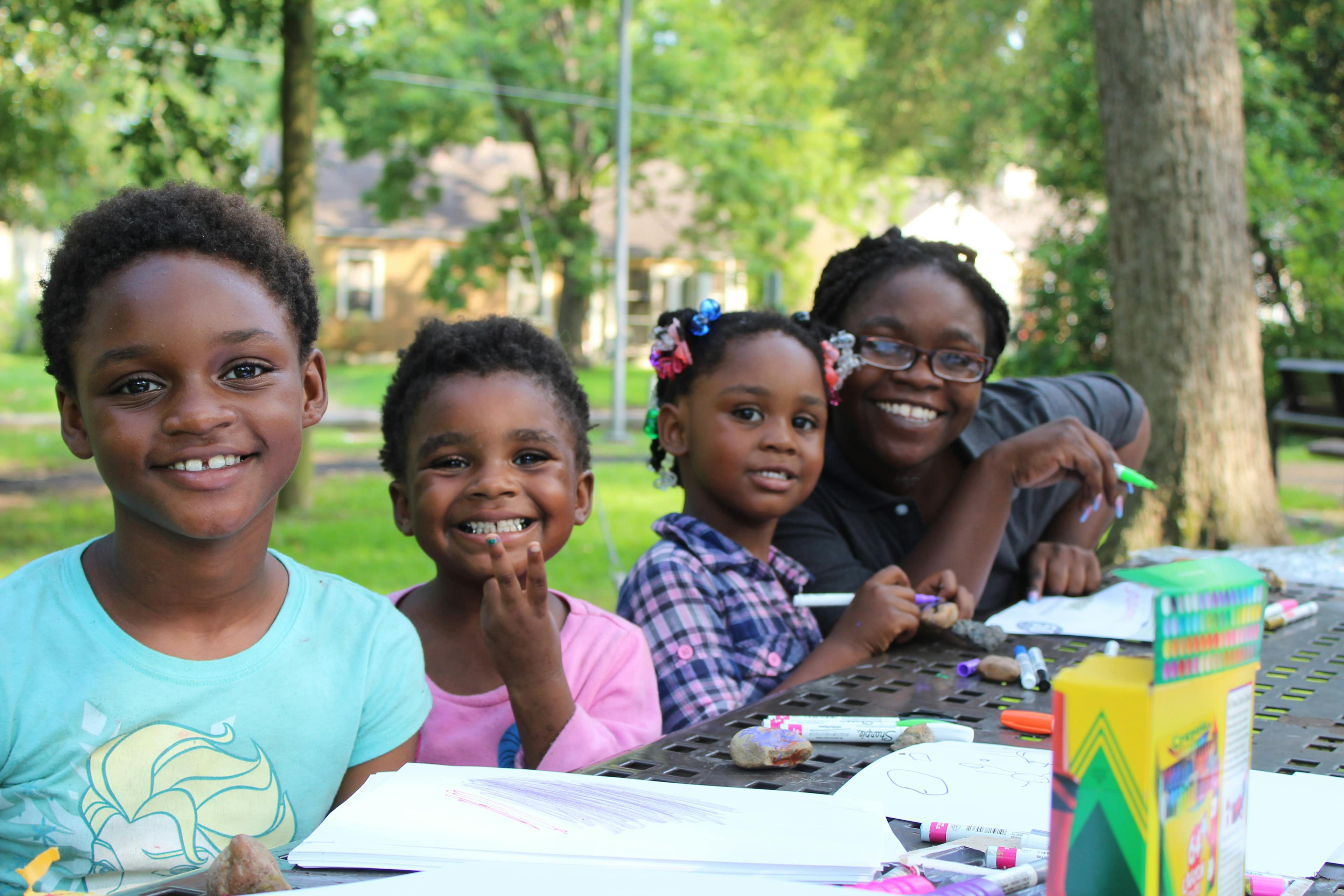“What does prosperity look like for you?"
In 2017, Aisha Nyandoro made a proposal. She wanted to give $1,000 every month, no strings attached, to a group of low-income Black mothers through her nonprofit, Springboard To Opportunities, in Jackson, Mississippi. At the time, the concepts of “universal basic income” or “guaranteed income” were nowhere near the public consciousness, and every potential partner who heard her vision had the same answer: “You can’t do that.”
This wasn’t an idea that Nyandoro, an Emerson Collective Dial Fellow, had come up with on her own. It was one she’d arrived at after months of conversations with moms, on front porches and in living rooms, about their hopes and dreams, as well as their needs and challenges.
“Springboard had been focused on day-to-day programs, but we started to see the layer under that. Every story we heard was something that could be resolved with cash,” explains Nyandoro. “It was, ‘I’m really stressed because my daughter made the cheerleading squad and I don't know where I'm going to get the $175 for her to participate,’ or ‘I feel like such a bad mom because I don't have the money to have pizza with my kids on Friday.’” Consistent income, Nyandoro believed, would alleviate the strain.
Eventually, in 2018, after a series of serendipitous connections to partners and others circling similar ideas, Springboard To Opportunities officially launched the Magnolia Mother’s Trust. To date, it has supported 320 Black mothers in affordable housing with $1,000 every month for a full 12 months. The moms in the program have gotten a chance to get ahead, and also connect with a supportive community. And while there was much consternation about what people would do with the money – Nyandoro notes that the idea that money will be used frivolously is a common trope in arguments against guaranteed income – she has seen it have a catalytic impact on the lives of the women in the program.
Today, there are more than one hundred guaranteed income programs in the US. But Magnolia Mother’s Trust was one of the first, and now it’s the longest-running. Nyandoro had clearly landed on an idea that was way ahead of its time.
“I am a Black woman in Mississippi. In 2017, I was talking about something that had people looking at me like I had a double head coming out of my neck,” Nyandoro says. “But here we are, years into doing the work, and it has been life-changing not only for the women we serve, but for the hundreds of thousands of people who are getting guaranteed income based on what we modeled.”
While Springboard To Opportunities has become a leader in the guaranteed income movement, Nyandoro didn’t even intend to start a nonprofit.
In 2013, when working at a regional community foundation in Mississippi, she heard an affordable housing developer speak about his desire to do things differently, in a way that was better for residents and didn’t perpetuate cycles of poverty. She started asking around, trying to find an organization for him to partner with. But in talking to residents, she realized there wasn’t any kind of organization like that.
“Most resident services providers are focused on what's happening at the property or with the property bottom line,” she says. “The families in affordable housing don’t really have advocates. They’re just constantly told what they should be doing or what they can’t do.’”
Nyandoro started Springboard to Opportunities to flip this paradigm. “With Springboard, our approach is, ‘Okay, how about you take care of the families that live in that space?” The goal was to be “radically resident-driven” - in other words, to listen to people and design programs responsive to their needs.
The most salient need was a simple one: families needed a safe, stimulating place to send their kids after school. So Springboard partnered with a local elementary school to provide programming from 2:30 to 5:30pm, five days a week, at no cost. From there, they launched a workforce development program, to help residents set professional goals, break down the steps, and celebrate their wins. They launched health-related programming, like onsite healthcare clinics, and created an emergency care closet.
Aisha Nyandoro“In this country, we really do believe that poverty is an individual failing and not a societal policy failing that we're all responsible for.”
But after four years, Nyandoro noted that families weren’t moving out of affordable housing and into their own homes. “In spite of everything we were doing, we weren't moving the needle on poverty,” she says. “Families were telling us they didn’t have the financial resources to realize their dreams.”
So she started asking questions again, to see what Springboard was missing. And when the common denominator of small amounts of money began to crystallize, she pulled together a roundtable of moms, to come up with a plan for what a cash-based program might look like. “For six months, they just came and sat around our conference room table with me,” she says. “Honestly, we had lunch and just dreamed together.”
They landed on the name Magnolia Mother’s Trust, the amount of $1,000 a month, and the span of 12 months. And to keep the benefits rolling forward, they also came up with the idea of opening a 529 college savings account for every kid of a Magnolia mom, seeded with an additional $1,000.
In its years of operation, the Magnolia Mother’s Trust provided income stability that lets mothers put food on the table, do that car repair, start to pay off debt, or save up toward a home purchase. But it’s also allowed mothers to invest in joy—for themselves and for their families. The program means there’s money to register a child for Little League, sign up for a class at the gym, even take the whole family out to the movies or host a backyard BBQ.

Working to break the cycle of generational poverty in the Deep South by providing direct financial support to Black women.
This year, as Springboard To Opportunities celebrates its 10 year anniversary, Nyandoro is focused on fostering the larger movement—by building a community of practice for guaranteed-income programs and also finding ways to surface impact from the Magnolia Mother’s Trust, to show that cash-based social justice policies work. But she’s also guiding Springboard through a notable internal shift: from focusing on specific programs to leading broader movements.
“Our work is changing,” she says. “That is beautiful, and that is by design—because the world is changing. The shift is strategic. And it all comes from listening.”
Today, Nyandoro is thinking about how to spark generational change. This starts with a new problem: the intergenerational wealth gap. The reality is that the median Black household in the US has less than 15% of the wealth of the median white household.
Nyandoro and her team are starting to have conversations with residents about this wealth gaps, and are already noticing specificity to how women talk about it.
Aisha Nyandoro“Why not let Black women define wealth for themselves? How do we meet them where they are?”
“When we ask our moms, ‘What does prosperity look like to you?’ it's never about ‘my financial portfolio,’” she says. “ It’s, ‘I want a house with a garage that I can park my car in.’ It's about safety and security, and having privacy—not having a neighbor below you or above you. It's the joy of being able to go on vacation with your kids annually, knowing that that is now a part of your family's traditions and culture.”
She recognizes that this conversation sits within the cultural stereotypes surrounding race, class and gender. “In this country, we really do believe that poverty is an individual failing and not a societal policy failing that we're all responsible for,” she says. “The narrative surrounding this population is that they choose to be poor.”
Nyandoro is excited to design a program that cuts through these deeply entrenched ideas and that can support families in building wealth to pass on after them. “Why not let Black women define wealth for themselves?” she asks. “How do we meet them where they are?”
The answer isn't clear yet, but Springboard to Opportunities has a solid foundation to build on. It will take time for the shape of this new program to emerge, but Nyandoro knows the key is to keep the dialogue going: she is confident that the answer will emerge through conversations with the women in her program—and building toward their vision of prosperity.


